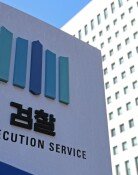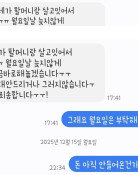Law banning flying leaflets towards N. Korea takes effect this week
Law banning flying leaflets towards N. Korea takes effect this week
Posted March. 30, 2021 07:31,
Updated March. 30, 2021 07:31
A law banning and criminalizing the sending of propaganda leaflets into North Korea takes effect on Tuesday. Amid rising concerns at home and abroad over the law’s possible violation of the right to freedom of expression, it is likely to become a controversial issue between South Korea and the U.S. as the U.S. Congress is set to hold a hearing on the leaflet ban as early as next month.
Kim Dong-suk, president of the Korean American Grassroots Conference (KAGC), said at a lecture on the Biden administration’s North Korea policies hosted by the National Unification Advisory Council Toronto Chapter Meeting on Saturday (local time) that the Tom Lantos Human Rights Commission will soon hold a hearing on the law. Speaking with The Dong-A Ilbo over the phone, Kim said that the officials of the bipartisan body told him that a hearing on the leaflet ban will be held in a few weeks. Rep. Chris Smith, co-chair of the Tom Lantos Human Rights Commission, earlier publicly announced his intention to hold a hearing on the issue.
It has been known that Park Sang-hak, chairman of Fighters for a Free North Korea who has been flying anti-Pyongyang leaflets to North Korea, and his brother Park Jung-oh, the head of the North Korean defector group Keunsaem, will testify at the hearing. In a phone call with The Dong-A Ilbo, Park said the hearing is expected to be held in mid-April, adding that he has already submitted documents requested by the commission and will attend the hearing if asked.
Some North Korean human rights groups in South Korea are planning to continue sending leaflets to North Korea even after the law takes effect. The head of a human rights group said that the group privately sent leaflets and USBs to North Korea even before the law was introduced and he will continue to do so in various ways.
Those who violate the law can face up to three years in prison or a fine of up to 30 million won. When the National Assembly passed the bill under the lead of Democratic Party in December last year, controversies mounted over the law’s possible violation of the right to freedom of expression and its scope of application. The 2020 Human Rights Reports by the U.S. State Department reportedly contains concerns over the leaflet ban’s possible violation of the right to freedom of expression.
Unification Ministry spokesperson Lee Jong-joo said during a regular briefing on Monday that the ministry will apply the law “in a flexible and reasonable manner” in line with the government’s goal of “improving the human rights situation of North Koreans and inter-Korean relations, and settling peace on the Korean Peninsula.”
lightee@donga.com



![[단독]이혜훈 “장남 다자녀로 연대 입학”…당시 그런 전형 없었다](https://dimg.donga.com/c/138/175/90/1/wps/NEWS/IMAGE/2026/01/23/133215083.1.jpg)
![하버드 의사가 실천하는 ‘뇌 노화 늦추는 6가지 습관’ [노화설계]](https://dimg.donga.com/c/138/175/90/1/wps/NEWS/IMAGE/2026/01/22/133210626.3.jpg)


